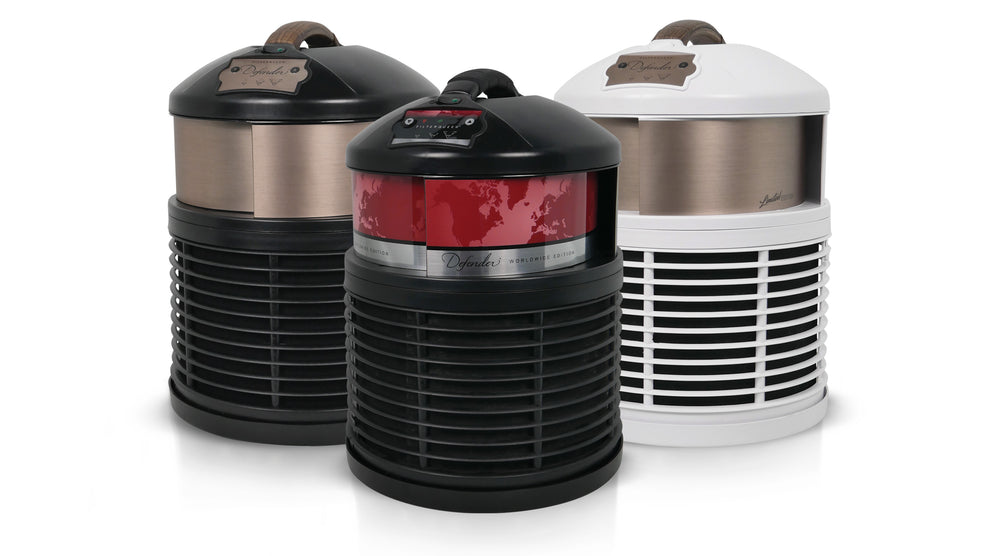Portable Air Purifier Guide for Home Office, Cubicles and Small Rooms

So, you’re thinking about purchasing an air purifier for your office or cubicle at work? Nice! The average adult takes 12 to 20 breaths per minute, so it’s important that the quality of air we breathe is exceptional. However, the world of portable air purifiers can be a confusing one full of jargon and false promises. This guide will help you understand what air purifiers can do for you and how to select the right one for the job.
Do I Really Need an Air Purifier?
Every person’s life and daily routine varies to some degree, but let’s look at the facts. The average American spends around 90% of their time indoors, most of which is spent either at home or at the office. If you take into account the length of your average workday and remember that we usually spend about a third of our day sleeping, that statistic makes sense. However, a fact that most people don’t know is that indoor air quality can actually be up to 5 times worse than outdoors due to the lack of proper ventilation and access to fresh air. Indoor air is typically full of pollutants such as mold, allergens, viruses, bacteria, and volatile organic compounds (VOCs).
The simple solution to controlling indoor air quality can be as easy as opening a window to circulate fresh air into your office space. Unfortunately, due to inclement weather or outdoor pollution, this option is not available to everyone. Oftentimes, cubicles and office settings don’t even have window access. In these situations, you should look into getting a portable air purifier.
What are the Different Types of Air Purifiers?
HEPA Air Filters
Ozone Generators
Avoid air purifiers that use ozone or produce ozone as a byproduct. Ozone indoors can create throat irritation, coughing, chest pain and shortness of breath, as well as an increased risk of respiratory infections. In fact, California has long banned any air purifier that produces ozone from sale anywhere in the state.
Ionizers
UV Light
Air purifiers using UV lamps claim that the UV radiation they produce eliminates unwanted pollutants in the air. However, using UV technology effectively, even in controlled settings, uses a lot of power and comes with many potential dangers, such as uncoated lamps producing ozone and even potential injury to your eyes. In fact, the EPA did a landmark study on air purifier technology, and they concluded that UV technology in an air purifier should be avoided because it is ineffective, expensive, and potentially dangerous.
Photocatalytic Oxidation (PCO)
What Size Air Purifier Do I Need for My Office?
Compact
Portable
Console
What Other Factors Should I Consider When Buying a Portable Air Purifier for My Office Space?
Room Size
Noise Level
Reliability
There will always be odors and pollutants in an indoor office environment. You should choose an air purifier that works 24/7 and comes with a lifetime perpetual warranty, like the FilterQueen Defender, so you never have to leave your air quality up to chance.
Fortunately, there are some portable air purifiers, like the FilterQueen Defender, that are genuinely top of the line when it comes to air purification. The Defender Medi-Filter Cartridge removes over 99.99% of airborne particles down to 0.1 micron – making it 3 times more effective than the aforementioned HEPA standard at removing harmful viruses, bacteria, dust, mold, and allergens from your indoor air. It also comes with an Enviropure Charcoal Wrap that eliminates VOCs and unwanted odors in your air.
Hopefully this helps you understand what to look for when choosing an air purifier for your office and what things to avoid. Work can be stressful enough without worrying about the quality of air you are breathing – and with the right air purifier, you won’t have to.
By Ryan Duggan
The best air purifier for office spaces.



